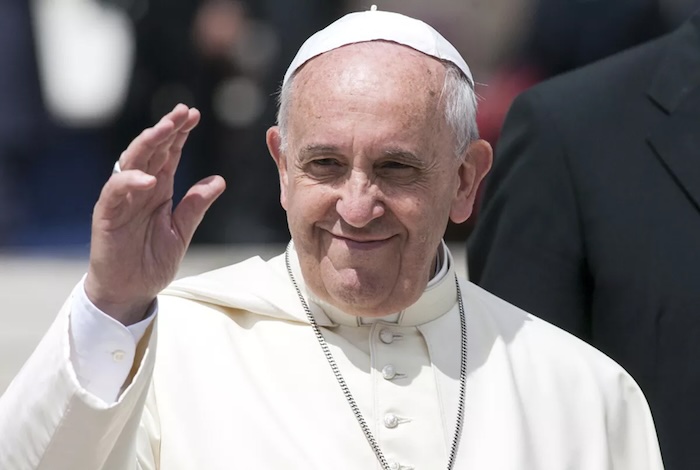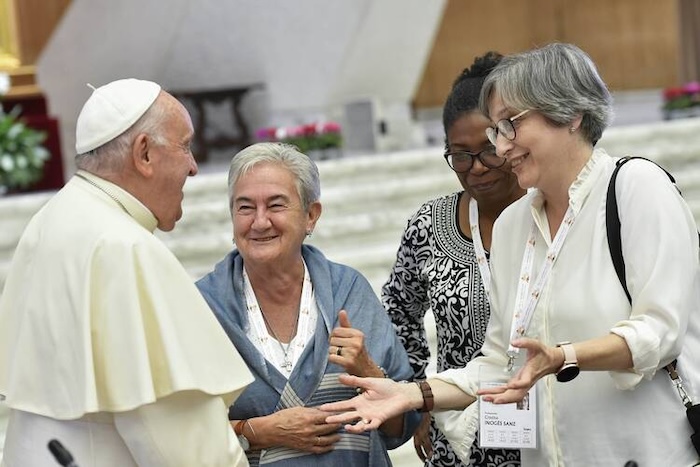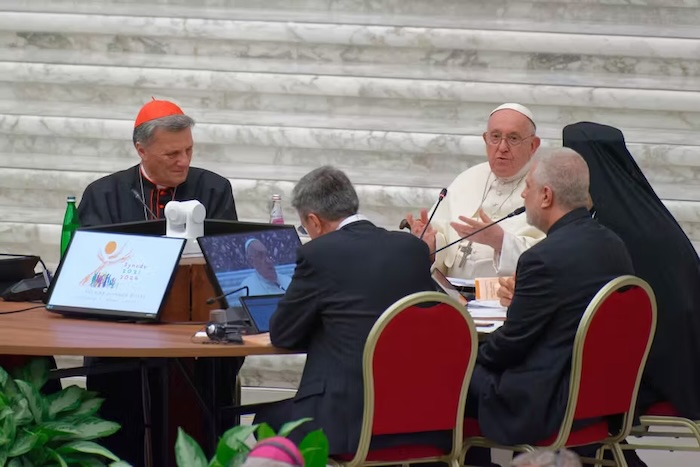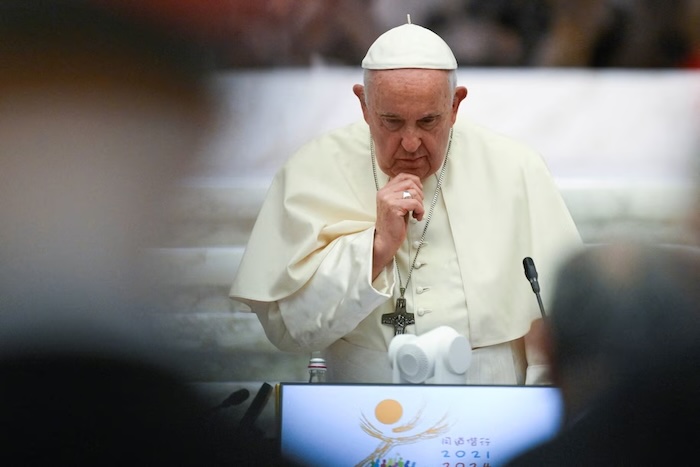— Pope Francis’s record is a bit mixed when it comes to LGBTQ+ acceptance.

Pope Francis, the 86-year-old head of the worldwide Catholic Church, met with the Maryland-based LGBTQ+ Catholic organization New Ways Ministry at his Vatican residence on October 17. While the organization said that the 50-minute meeting “reflects the steady acceptance of Catholic officials to LGBTQ+ issues and ministry,” the pope still has a mixed record on LGBTQ+ issues.
The pope reportedly invited the group to his residence two years after the group’s co-founder, Sister Jeannine Gramick, sent a letter introducing herself and her group to the religious leader. The letter began a friendly exchange of correspondence between the two, leading the pope to call her a “valiant woman” and to congratulate her on her 50 years of LGBTQ+ ministry, New Ways Ministry wrote in a statement.
At the meeting — which included Gramick and three New Ways Ministry staff members — Gramick thanked the pope for “his openness to blessing same-sex unions, as well as for his opposition to the criminalization of LGBTQ+ people in civil society,” the group’s statement said.
“The meeting was very emotional for me,” Gramick said. “From the day he was elected, I have loved and admired Pope Francis because of his humility, his love for the poor, and for those shunned by society. He is the human face of Jesus in our era.”
New Ways Ministry’s Executive Director Francis DeBernardo said, “This meeting was an affirmation not only of Sister Jeannine and New Ways Ministry but of the thousands upon thousands of LGBTQ+ people, parishes, schools, pastoral ministers, and religious communities who have been tirelessly working for equality, and who often experienced the great disapproval and ostracization…. Meeting with Pope Francis is a great encouragement for Sister Jeannine and New Ways Ministry to continue our work in the Catholic Church.”
In 1984, Washington, D.C. Archbishop James Hickey encouraged the group’s founders to disassociate with the group, according to The Washington Blade. In 1999, Cardinal Joseph Ratzinger, the head of the Vatican’s doctrinal office, issued an order forbidding the group’s cofounders from doing any pastoral work with queer people. Ratzinger would later become Pope Benedict XVI and serve from 2005 until his historic resignation in 2013 due to a “lack of strength of mind and body” in his old age.
In the past, Pope Francis has criticized his own church’s leaders for becoming too focused on divisive issues like homosexuality. He told U.S. bishops to lay off the anti-gay attacks and compared homophobes to Nazis. He also suggested that he could support same-sex unions, said that celibate gay priests should be allowed to serve, and even met with other LGBTQ+ activists, reportedly telling one man that God made him gay and donating money to a group of transgender sex workers.
In January, he called laws criminalizing homosexuality “unjust” and insisted that God loves all his children just as they are. He also called on Catholic bishops to welcome LGBTQ+ people into the Church. In 2020, he also said that nations should recognize civil unions for same-sex couples because they “have a right to a family.”
However, Pope Francis has also said that the Catholic Church can’t bless same-sex relationships because they’re a “sin,” that gay priests are being “fashionable” and should “leave the ministry,” that bishops should reject priesthood applicants suspected of being gay, that gay couples can’t be families, that U.S. clerks have a right to deny marriage certificates to same-sex couples, that parents should send their gay children to therapy, that trans people will “annihilate the concept of nature,” and that trans youth shouldn’t try and access gender-affirming medical care.
Though Pope Francis has been praised as a progressive face for the centuries-old church, his words have revealed his slow, gradual warming toward LGBTQ+ individuals, even though official church teachings remain steadfastly anti-LGBTQ+.
Complete Article ↪HERE↩!




